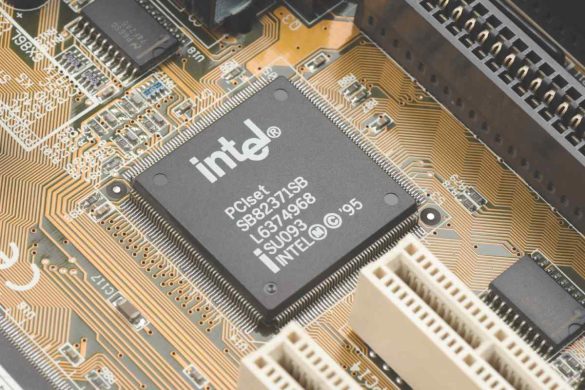Bitcoin affect Intel – Intel has been a big player in the hardware industry for many years, but recently they have begun to dabble in the world of Bitcoin. In November of 2016, Intel announced that they were creating a new unit specifically to focus on blockchain technology and Bitcoin. Learn more about bitqt from here.
This is a big move for Intel, as it shows that they are serious about cryptocurrencies and their potential to disrupt the traditional hardware industry.
If Bitcoin grows in popularity and becomes more mainstream, it could drive demand for hardware products from Intel.
As more people start using Bitcoin, they will need powerful computers to mine the coins and process the transactions. This could be great news for Intel, as they are a leader in the hardware industry.
Second, Bitcoin could also have an impact on Intel’s business model. Currently, Intel makes most of its money by selling hardware products to businesses and consumers.
However, with the advent of Bitcoin and other cryptocurrencies, there is now the potential for Intel to start accepting payments in Bitcoin. This could be a significant advantage for them, as it would allow them to tap into the growing cryptocurrency market.
Overall, it seems that Bitcoin can be a significant disruptor for the traditional hardware industry. Therefore, Intel is wise to get ahead of the curve and focus on blockchain technology and cryptocurrencies.
This could be the beginning of a new era for Intel, and it could end up being one of the biggest beneficiaries of Bitcoin’s growth.
Table of Contents
6 Ways How Bitcoin can affect Intel
-
Increased demand for bitcoin-friendly hardware could lead to an increased need for Intel processors and other hardware:
Intel has been a longtime player in the processor market, and as bitcoin grows in popularity, demand for its processors will likely increase. This could lead to increased revenue for Intel and an increased need for other hardware, such as motherboards and graphics cards.
-
Bitcoin could help Intel become more competitive in the processor market:
With AMD releasing processors that are better suited for mining bitcoin, Intel will likely want to release processors that are better suited for bitcoin as well. This could help the company become more competitive in the processor market and increase its market share.
-
Bitcoin could lead to increased innovation at Intel:
As bitcoin grows in popularity, there is a good chance that more people will start to experiment with it and develop new ways to use it. This could lead to increased innovation at Intel, and the company could release new products specifically designed for bitcoin.
-
Bitcoin could help Intel reduce its carbon footprint:
Bitcoin is a digital currency that can purchase goods and services online. This could help Intel reduce its paper trail, leading to decreased environmental impact.
-
Bitcoin could help Intel reduce its reliance on third-party payment processors:
Third-party payment processors such as PayPal and Visa can charge high transaction fees, eating into profits. Bitcoin could help Intel reduce its reliance on these processors and keep more earnings.
-
Bitcoin could help Intel become a more trusted company:
As a cryptocurrency, bitcoin is not regulated by any government or financial institution. This could help Intel become a more trusted company and increase demand for its products.
7 Negatives of Bitcoin that can affect Intel
- Volatility – The price of bitcoin is highly volatile, which can negatively affect Intel as it could affect the costs of the products it manufactures.
- Limited acceptance – Many merchants do not accept Bitcoin, limiting Intel’s ability to use it as a payment method.
- Security concerns – Bitcoin has been hacked in the past, which could lead to negative publicity for Intel.
- Regulations – Governments may start to regulate bitcoin, negatively impacting Intel’s business.
- Competition – Many other cryptocurrencies could compete with bitcoin, limiting Intel’s ability to capitalize on it.
- Energy consumption – Bitcoin is a very energy-intensive currency, negatively affecting Intel’s bottom line.
- Limited use cases – Bitcoin is mainly used as a digital currency, limiting Intel’s ability to use it for other purposes.
Conclusion
Although there are some risks associated with bitcoin, there are also many potential benefits that Intel could capitalize on. Overall, bitcoin presents a unique opportunity for the company, and it is worth exploring further.


